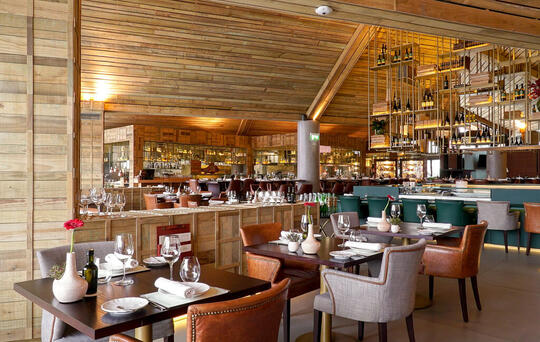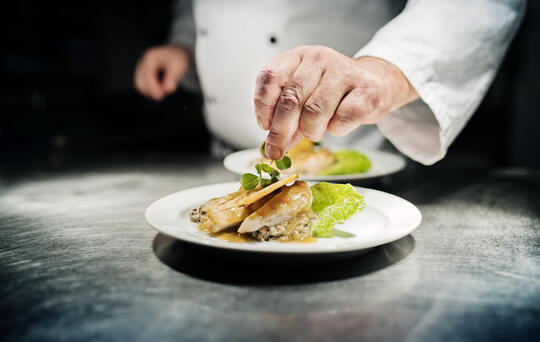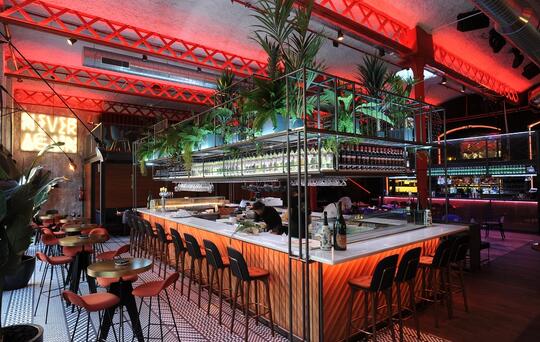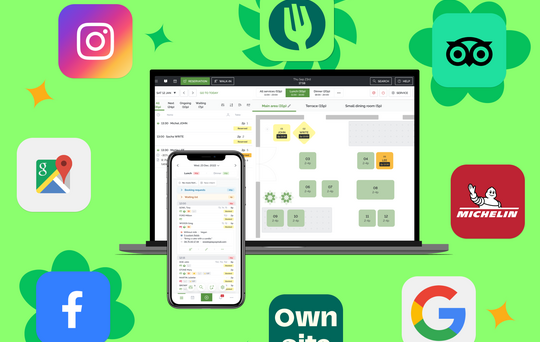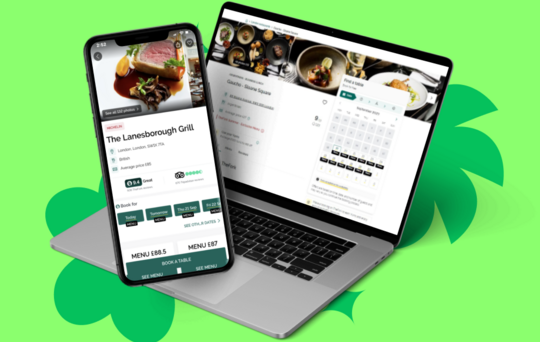Food Safety and Food Security: Definitions and Differences
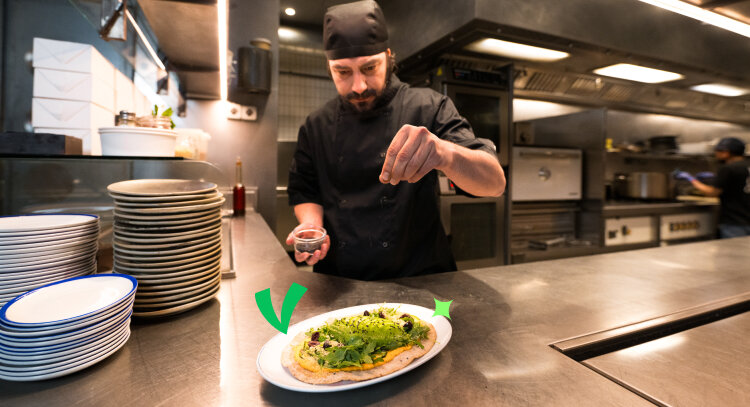
- • What is meant by Food Safety?
- • What is the Difference Between Food Safety and Food Security?
- • Try TheFork Manager today
- • The Importance of Food Safety and Food Security
- • How the Restaurant Industry Can Help Ensure Food Safety and Food Sustainability
- • TheFork Manager for Food Safety
- • Empty tables and ever-increasing costs?
Running a successful restaurant requires teamwork, with everyone—whether preparing food, serving guests, or managing the day-to-day—contributing to upholding food safety and security standards. These guidelines aren’t just vital for keeping your business running smoothly; they’re also key to earning and keeping the trust of your customers.
Proper food hygiene and safety are essential when it comes to serving fresh and nutritious meals your customers can trust (and want to keep coming back for). With public health at stake, along with an increasing emphasis on sustainability and minimising food waste, adhering to these practices is crucial for the long-term success and growth of your restaurant.
Equally important is understanding the distinction between food safety and food security. While often linked, food security focuses on ensuring access to sufficient and nutritious food, which is a growing priority for many in the restaurant industry. Together, these principles help make your establishment a safe and dependable choice for diners.
What is meant by Food Safety?
Food safety refers to the set of practices involved in handling, preparing, and storing food to prevent foodborne illnesses and ensure that harmful contaminants don't reach consumers.
For those working in the culinary industry, understanding food safety basics is essential. This includes knowing the risks of illnesses caused by dangerous pathogens, such as Salmonella, Listeria, and E. coli, which can result from improperly stored or handled food.
The primary goals of food safety guidelines are to maintain the quality of the food and protect vulnerable populations. Managers play a key role in ensuring their teams follow the standards set by national authorities and organisations like the World Health Organisation (WHO).
In practice, this means prioritising personal hygiene, staying on top of sanitation, and properly labelling and storing ingredients. When these habits are in place, everyone benefits—your customers, your staff, and your business.
What is the Difference Between Food Safety and Food Security?
Understanding the difference between food security and food safety is key to maximising the performance of your restaurant, especially since the two are so closely connected. While they might seem similar at first glance, each plays a distinct and essential role in successful restaurant management, ensuring a positive dining experience, and the wider food system.
Food safety focuses on the practices and standards that ensure food is safe to eat and protect customers from harmful pathogens and contaminants. On the other hand, food security is a broader concept that ensures everyone has access to a sufficient, safe, and nutritious food supply. It’s about making sure there is enough food available for people, especially in times of need or crisis.
In simple terms, food security is about making sure there’s enough food available and accessible, while food safety ensures that the food we have meets the right standards for quality and health.
Try TheFork Manager today
The Importance of Food Safety and Food Security
There are several reasons why food safety should be a top priority for anyone in the restaurant industry:
- Protecting human health: At its core, food safety ensures that the food you're serving is free from harmful contaminants, significantly reducing the risk of foodborne illnesses (and very unhappy customers!)
- Legal compliance: Adhering to food safety regulations is not just about protecting customers; it also helps businesses avoid costly legal penalties while safeguarding their reputation in the industry.
But just as crucial, though often less discussed, is the importance of food security in the restaurant world:
- Universal access to food: Food security ensures that everyone, no matter their location or income, has access to enough safe and nutritious food. This is a vital principle for maintaining public health and well-being.
- Social and economic stability: A reliable food supply plays a key role in reducing conflicts tied to resource shortages and supports long-term, sustainable development.
How the Restaurant Industry Can Help Ensure Food Safety and Food Sustainability
While food safety is something most restaurateurs are familiar with, food security often takes a backseat in business plans. It’s one of those things that doesn’t always get the attention it deserves, even though it’s just as important. But the good news is, there are plenty of ways restaurants can use their existing food management systems to make a big impact—not just under their establishment’s roof but within their communities too.
- Implement strict food safety protocols: Since food safety and food security go hand in hand, it’s essential to train your staff on proper food handling, from storage to preparation. A little extra care can go a long way in preventing contamination. What’s more, using traceable ingredients that comply with food hygiene regulations adds a nice touch of transparency.
- Optimise resource management: Reduce food waste by controlling portions and making sure every bit of your ingredients gets used. And if you have any excess, why not donate it to local charities? It’s a simple way to contribute to food security within your community—and you’ll feel pretty good about it too!
- Support sustainable local production: It’s a good idea to work with local suppliers to shorten your food supply chain and reduce your environmental footprint. By promoting seasonal and sustainable food products, you can help ensure that quality ingredients are available throughout the year and longer-term, while also supporting the local economy. It’s a win-win.
TheFork Manager for Food Safety
Doing the right thing often leads to good outcomes for your business, especially when it comes to community-conscious diners. Today’s customers care about more than just what’s on their plate—they want to know that restaurants are committed to food safety, sustainability, and ethical sourcing. Food security is no exception, and prioritising it can help set your restaurant apart from the competition, improving both your reputation and your
bottom line.
Consumers are more informed than ever before, taking into consideration factors like food provenance and traceability when choosing where to spend their money. At TheFork, we can help you showcase your restaurant’s commitment to these values with customised cards, special menus, or themed events that will amplify your restaurant marketing efforts and draw in like-minded guests.
Ready to elevate your food safety and security standards to attract more customers?
Try TheFork Manager today and unlock the tools you need to showcase your commitment to a safer and more fulfilling dining experience!
Empty tables and ever-increasing costs?
- What is meant by Food Safety?
- What is the Difference Between Food Safety and Food Security?
- Try TheFork Manager today
- The Importance of Food Safety and Food Security
- How the Restaurant Industry Can Help Ensure Food Safety and Food Sustainability
- TheFork Manager for Food Safety
- Empty tables and ever-increasing costs?




